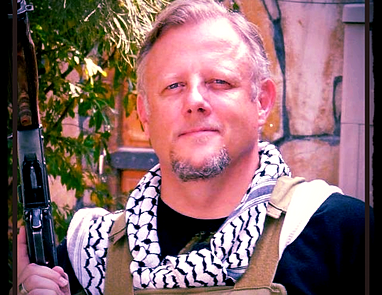By Weston Ochse © 2015
There’s something at once terrifying and romantic
about an invasion. One wrong move could mean the destruction of everything you
know and love, but in the heat of battle, there are crystalline moments in
which true humanity shines. Like many military authors, I often look to history
for guidance on how to write the future. I’ve always looked at the Battle of
Rorke’s Drift as the perfect sort of battle to represent an alien invasion. One
hundred and fifty British soldiers in a remote outpost are beset by four
thousand Zulu warriors. The odds seemed impossible, yet in the end the British
won the day.
The early Michael Cain movie Zulu retells this story and stands as one of my favorite military
movies of all time. There are moments in the film that resonate. In the face of
overwhelming attack, the sergeant major lowly commanding his men to take it
easy. Right when everything seems lost, several men channeling the ridiculous
still complain about having to fight and would rather go on profile. The
stoicism of Michael Cain’s character in the face of implacable odds.
There’s so much about this movie and story. But
overall what it tells me is that an alien invasion story isn’t about the
aliens. It’s about how people react to the aliens. It’s what I say about zombie
movies. With few recent exception, zombie movies and books aren’t about the
zombies, they’re about the people escaping the zombies.
Both zombie attacks and alien invasions are also very much like weather
phenomena. An earthquake. A volcanic eruption. A hurricane. They happen, and
the story is in how people survive it.
Ernest Cline treated the alien invasion much like
this in his recent Armada. Zack
Lightman’s humanity shines as he tries to figure out his place the invasion, so
clearly Cline got the grok.
The granddaddy of alien invasion stories, H.G. Wells,
concentrates his narrative on the reactions of those fleeing in War of the Worlds.
In Niven and Pournelle’s Footfall, it’s the understanding of the aliens and their
interactions with humanity that propels the plot forward.
David Gerrold’s War
with Chtorr series absolutely concentrates on how humanity reacts to an
alien terraformation and presented me with my first look at homosexual
relations in science fiction. The narrative surrounding that is so poignant and
so perfect, it remains fully formed in my memory.
So when I sat down to write Grunt Life and Grunt Traitor,
all of this fueled my senses (except for Armada,
which was written after these). I wanted my books to focus on humanity, in my
case a slice of humanity scarred with PTSD. In the first book, only the
soldiers have PTSD. They are suicidal. They can’t control their emotions. They
are as broken as soldiers come. But by the time the events in Grunt Traitor begin to unfold, everyone
on the planet has PTSD. My characters began searching for ways to understand
the enemy. Because my POV was from a grunt, a low level soldier, this was at
times a humorous McGyver-like attempt to overcome a particular aspect of the
invading aliens. They just didn’t know any better. Or as my old boss liked to
say, they don’t know what they don’t
know. Yet still they fight on.
Alien invasion books are the perfect sociological
foil for observation. At times, my characters surprised me, doing things I
hadn’t intended for them to do, but doing something absolutely in line with
their own personalities and duty positions. I began by saying that there is
something both terrifying and romantic about an alien invasion. The absolute
best thing, the romantic thing that never happens in real life, is that when
faced with an external enemy and against overwhelming odds, humankind is forced
to toss aside all of their petty hatreds and squabble and become one cohesive
defense force. To do otherwise, is to cease to exist. Cline and I use similar
language in our books to get this idea across. Sure, it’s pure romance, but
then at the end of the world what else is there?
About the author
Weston Ochse is the award-winning author of more than
twenty novels, including the
groundbreaking Task Force OMBRA series for Solaris.
A military veteran with over thirty years of service who began writing
professionally in 1997, Wes has seen his work published in magazines, comics
and anthologies. He lives in the Arizona desert, a stone’s throw away from
Mexico.
And if you could add the following links on the page somewhere
that’d be brilliant:
Grunt Traitor is out now (US)/13 August (UK)
you can find it online at:


Comments
Post a Comment